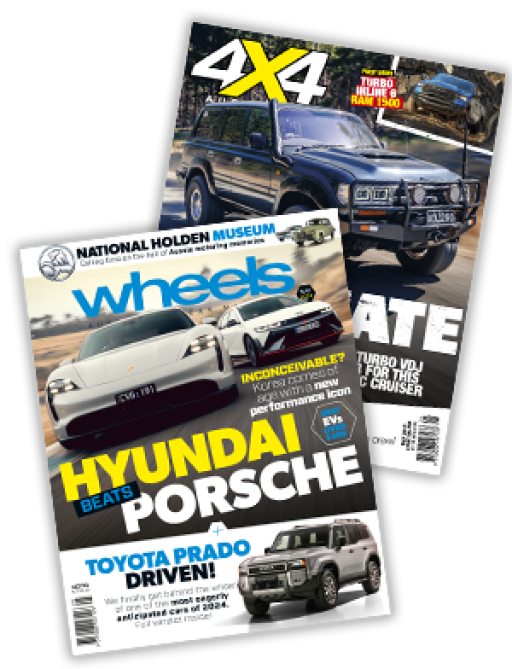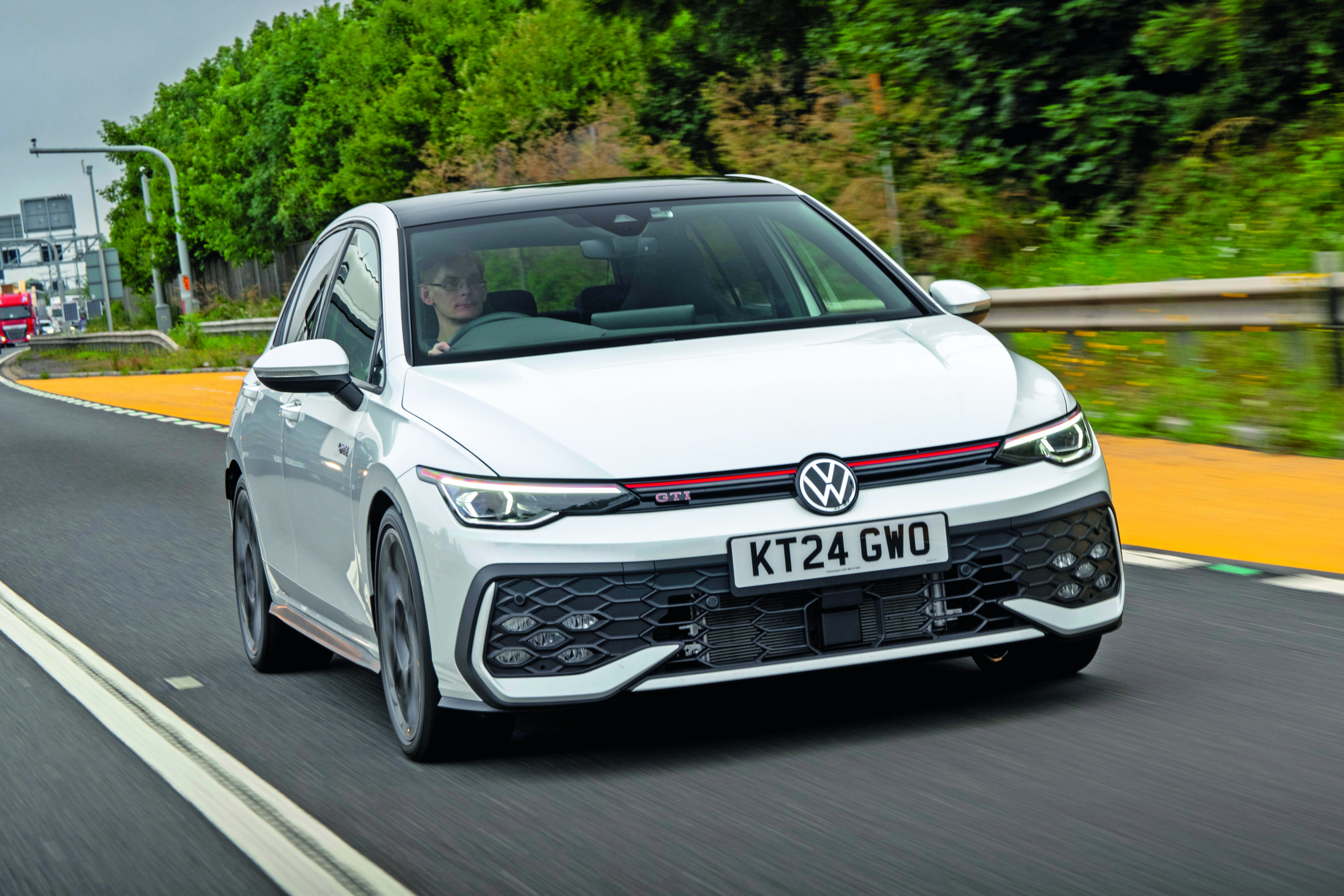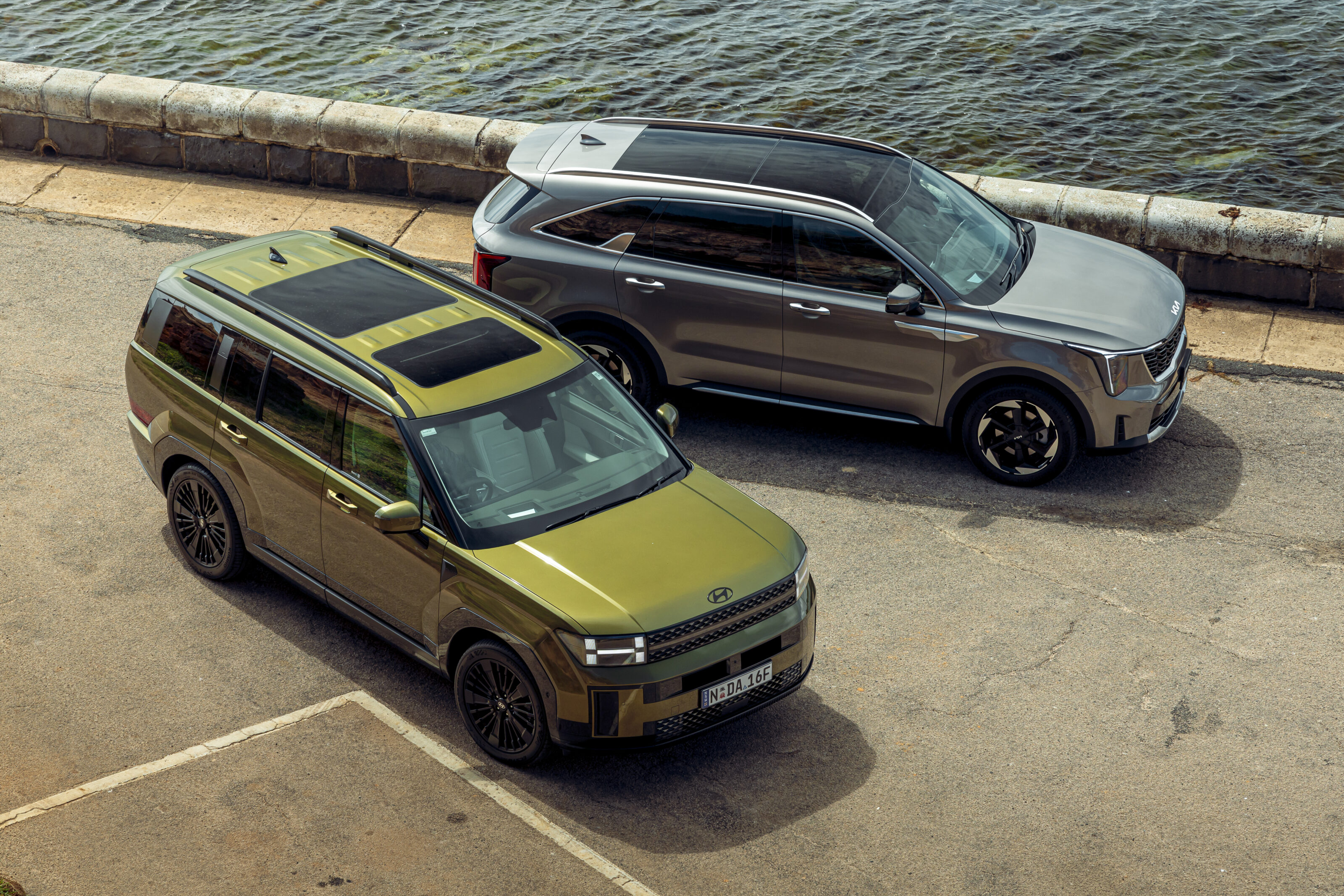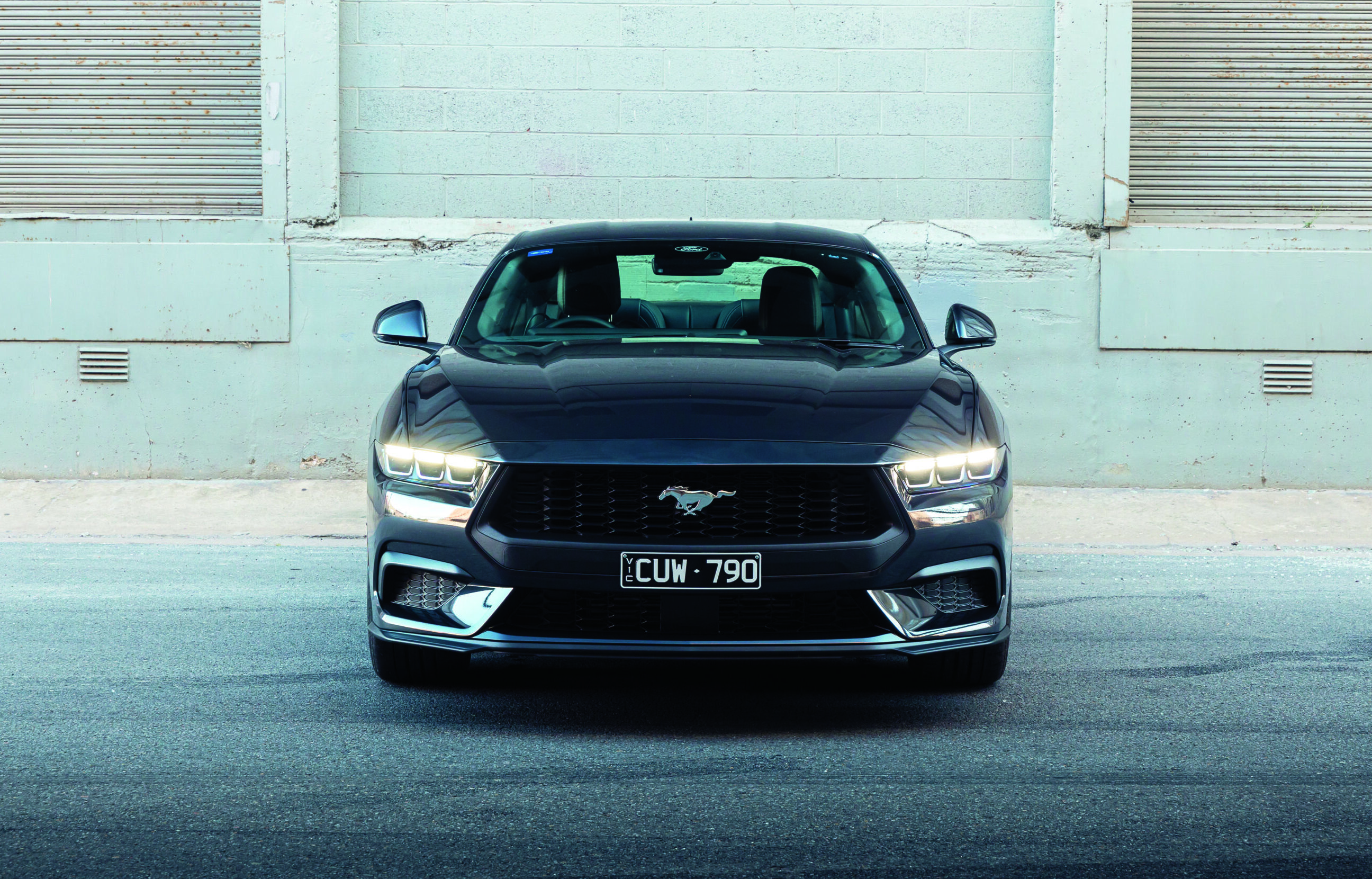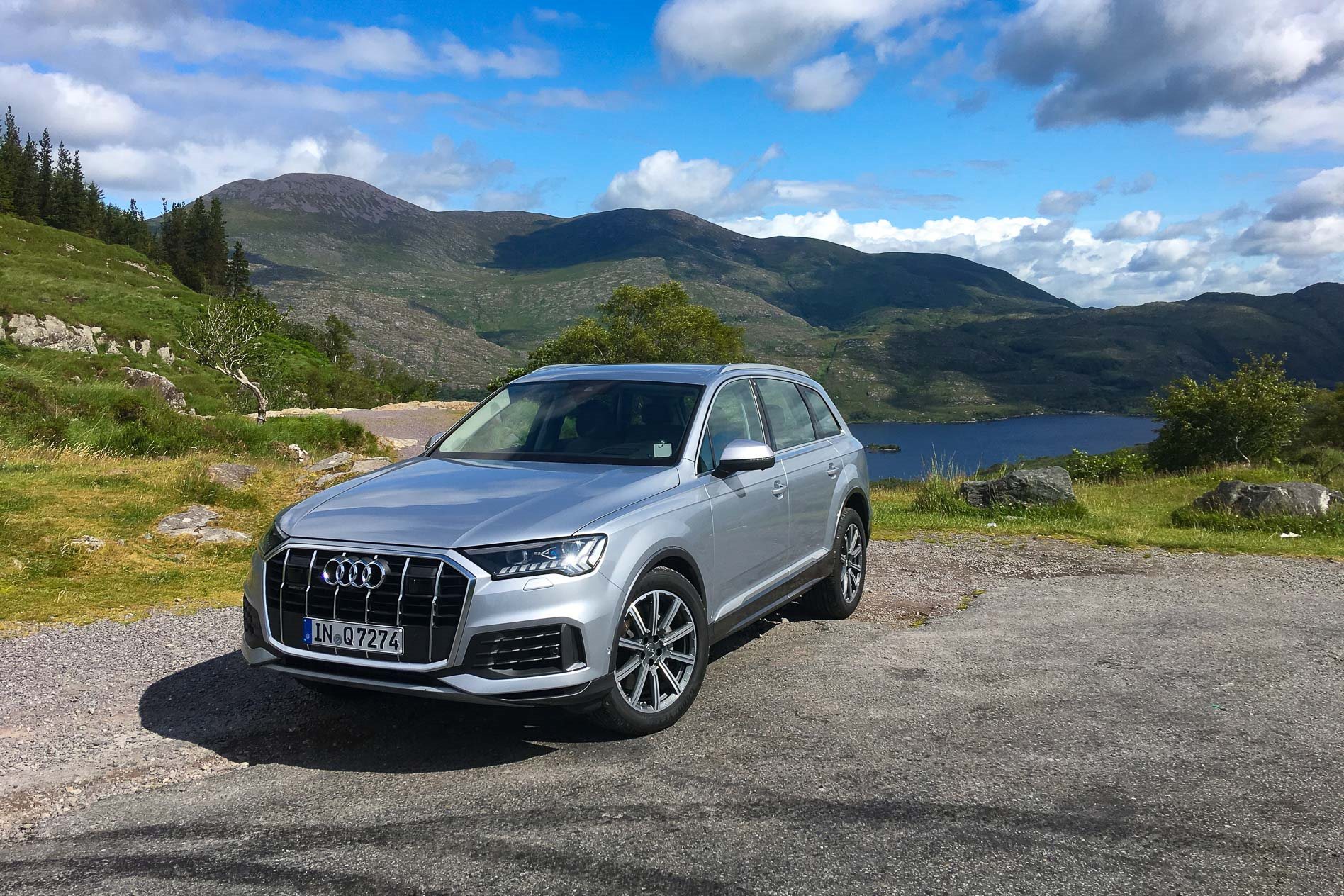
Introduction
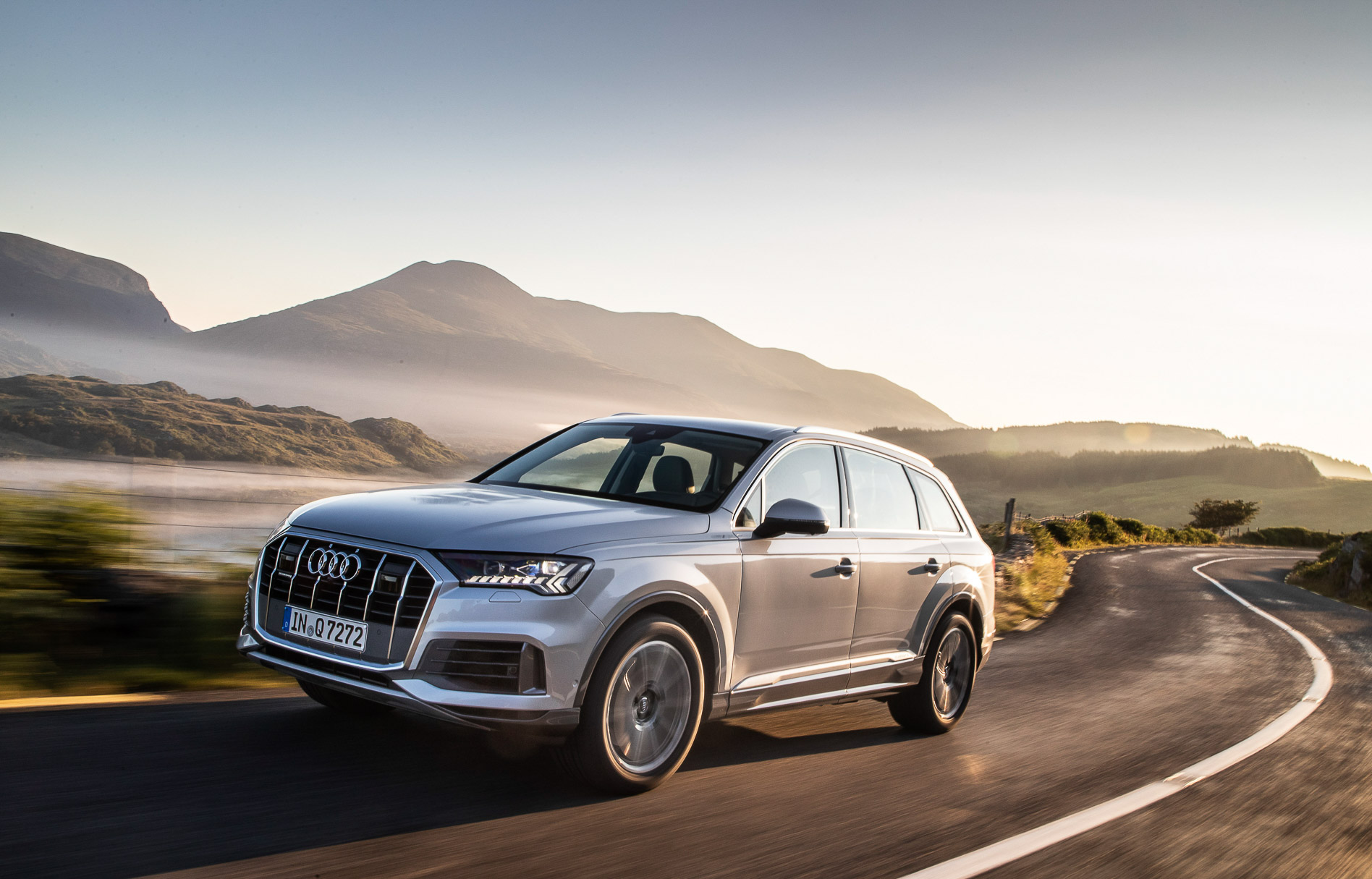
Audi’s update program continues to run at a million miles an hour, with its large-sized Q7 seven-seat SUV the next in the firing line.
The second-generation SUV made his debut in 2015, and it has scored solid numbers for Audi since then, despite costing the thick end of $100,000.
This mid-term facelift will surface down under early in 2020, and while prices aren’t locked down yet, it’ll certainly go north of its current position.
In return, though, the Audi Q7 will benefit from the best bits that the German luxury car maker currently offers, like electrically decoupling anti-roll bars, touchscreen multimedia and mild hybridisation.
Our drive in Kerry, Ireland was all too brief, but even from a tantalising first glimpse, we reckon the Q7 will continue to be popular.
So what’s new? It’s always hard to impart runway glamour to a large seven-seat wagon on stilts, but Audi’s stylists have combined the ruggedness of the Q7 with design cues from the urbane Q8.
Audi’s new frameless grille broadens the face of the Q7, though its sheer width reduces its impact. New, sharply angled LED headlights add authority to the front end, while a confident LED rear light structure adds distinction and character to the view at the back end.
Coloured lower rocker panels echo those used on the Q8 and the incoming e-tron, while new machined-face rims wrap up the exterior makeover.
Inside, the addition of a new, integrated multimedia touchscreen blends with the full-width horizontal vent slats, while a more conventional centre console treatment provides an interesting contrast.
Value
We’ll have to wait for early 2020 to get an idea of how much the Audi Q7 will cost in its updated guise but for reference, the current line-up ranges between $97,800 and $130,990. It sounds like a decent wedge of cash, sure, but it’s a lot of car for the money.
It competes with cars like the new BMW X5, the Range Rover Sport and Mercedes-Benz GLE, as well as sister SUVs like the Porsche Cayenne and the Volkswagen Touareg, which shares its basic bones and mechanical bits.
On its way to Australia for certain is the Q7 50 TDI (shown here), which uses a 3.0-litre turbocharged diesel engine that makes 210kW (ten more than previously) and 600Nm. It uses a traditional eight-speed automatic transmission linked to a permanent AWD drivetrain, all riding on air-sprung adaptive suspension.
Audi has added a 48-volt power system to the car, along with a belt alternator starter and a version of so-called hybridisation that uses a small lithium-ion battery to fire up the Q7 after up to 40 seconds of coasting (where the drivetrain and engine disconnect at highway speeds to save fuel).
Warranty-wise, Audi sticks with a three-year, unlimited-kilometre offering, despite the industry moving to a minimum of five years coverage outside the premium brands. Audi’s rivals including BMW and Mercedes area also persevering with three years.
Servicing is recommended at 15,000km or 12 months, and two plans are available; a three-year plan costs $2310, while a five-year plan costs $3120.
We really didn’t get much in the way of meaningful fuel burn data on our short, traffic-snarled jaunt around the Emerald Isle, but Audi claims a combined fuel economy figure of 6.9L/100km for the V6 diesel. It runs a 75-litre tank for a theoretical range of more than 1000km.
Standard Features
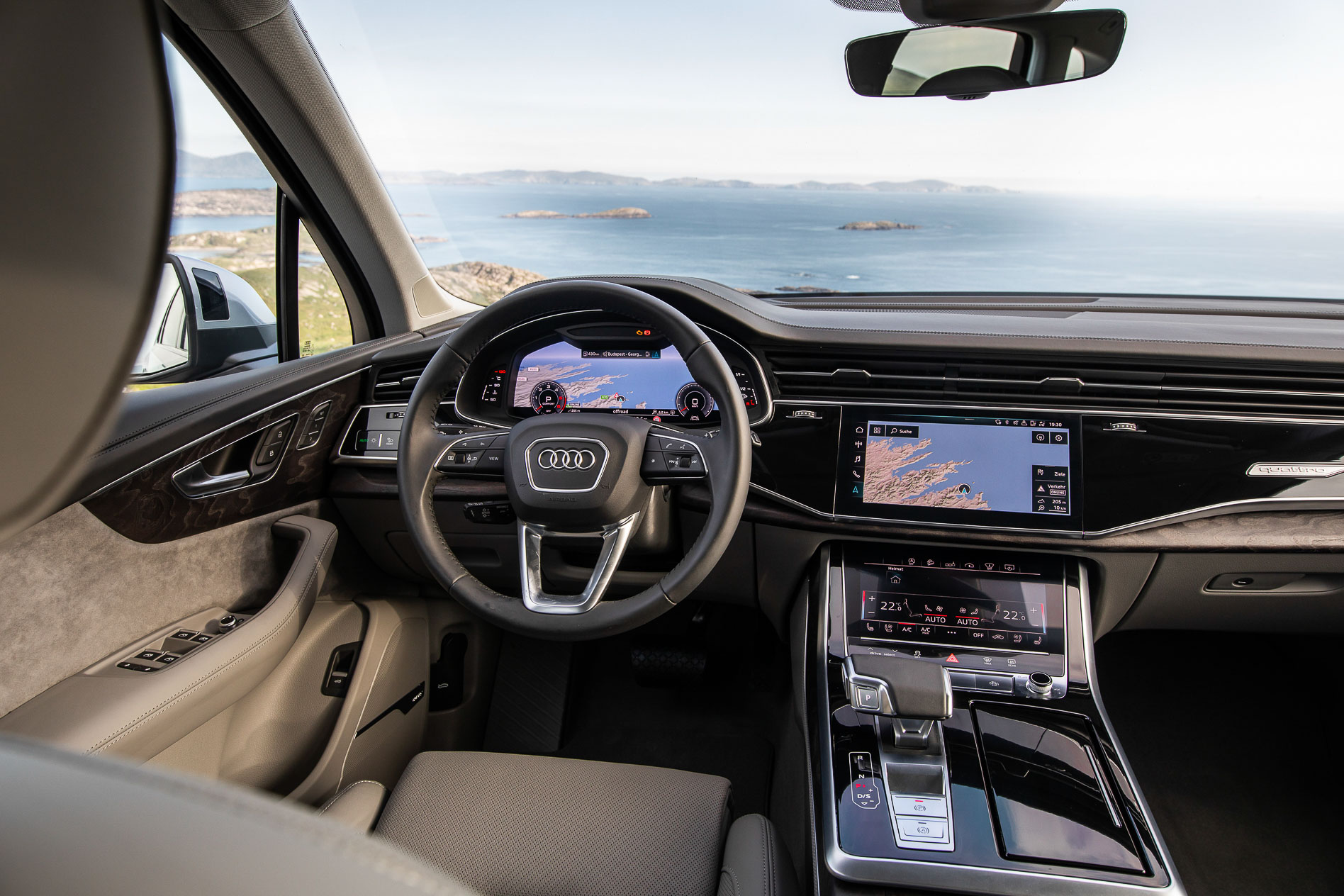
Basics specs are generous, and include LED headlights and tail-lights as a minimum, leather interior for all seven seats (a five-seat spec is available on a no-cost option order-only basis), leather-clad wheel, a digital dash and new multimedia system with wireless Apple CarPlay, smart sat-nav and digital radio, inductive charging mat, heads-up display, powered and heated front seats, rear climate controls and multiple vents, LED interior lighting and more.
New additions on the options list include the clever electro-magnetic decoupling anti-roll bars from the Audi S Q8, which allow the Q7 to tower up to 225mm above the ground. Those same anti-roll bars will then stiffen up under the car in more dynamic modes to minimise body roll, while the air springs lower the car to improve its aero figures and its centre of gravity.
Rear-wheel steering will also feature on the options list, along with sports air-sprung suspension.
Nineteen-inch alloys feature on our grey tester, but we bet that 20-inch rims will come standard on Australian cars.
Safety
Expect nothing less than an ANCAP maximum five-star rating when the updated Audi Q7 gets to Australia.
A full suite of active and passive safety features that include low- and high-speed AEB with pedestrian detection, smart adaptive cruise control with traffic jam management, front- and rear-cross traffic detection, trailer sway control and more is supplemented by up to seven airbags in all the right places.
Size
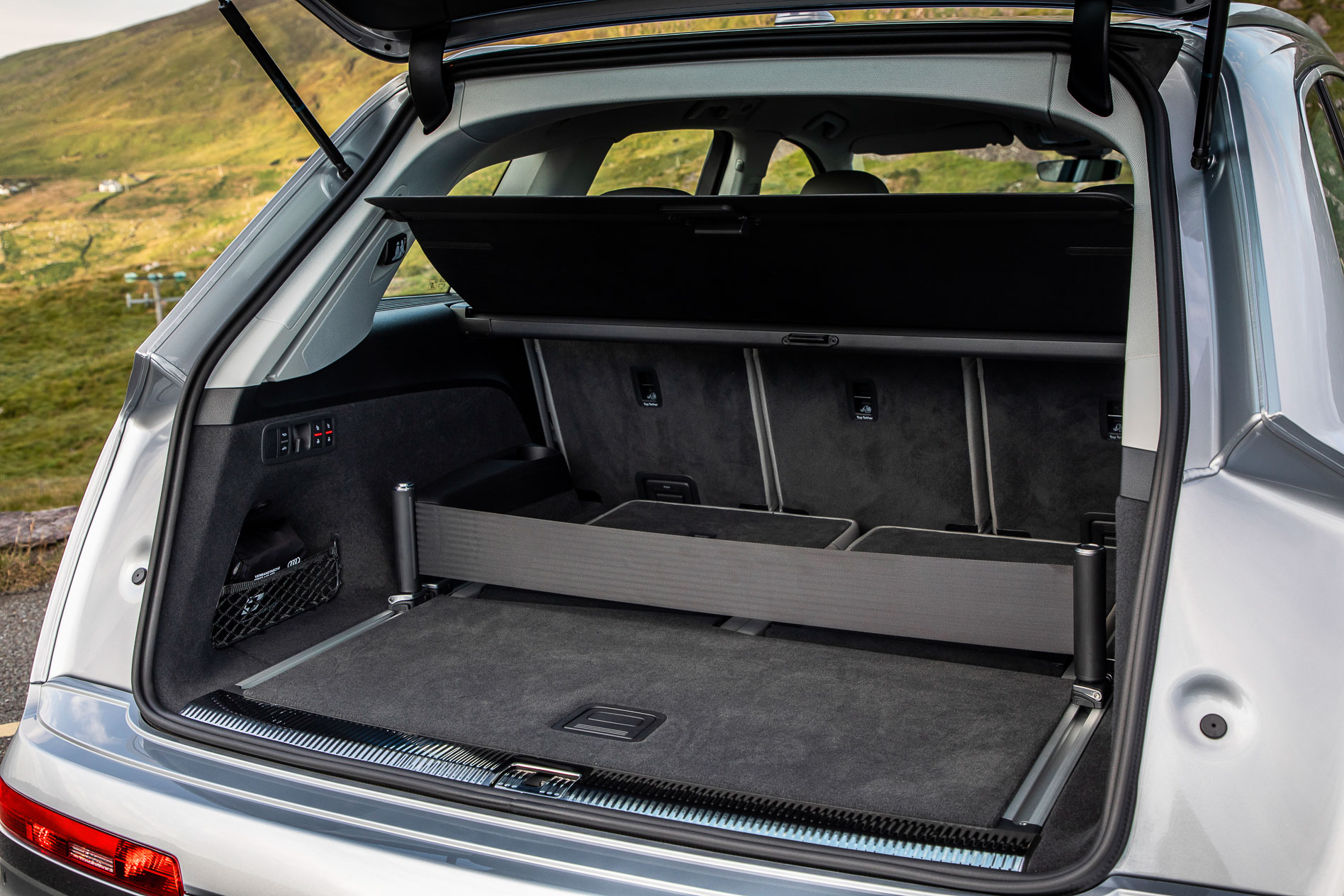
Even though the Q7 sells as a large SUV, the five-metre-long seven-seater looks much bigger. It’s nearly two metres wide, as well, giving it a firm hold on the earth.
The rear cargo space can hold 865 litres of gear, which is a reduction in space over the current model thanks to the hybrid gubbins stashed under the boot floor. Full capacity with the seats lowered is 2050 litres.
Want to tow with the Q7? It’ll handle up to 3500kg of braked trailer.
Comfort
The front seats in our tester are a little on the narrow side, surprisingly (does my butt look big in these jeans, then?), but have long bases and supportive backs. There are countless variants and combinations on offer out of the factory for Europe and other continents though, so we reckon Audi may change spec before the Q7 lobs down under.
There is an absolute acre of room in the second row, which features sliding-rail seats with reclining backs and simply oodles of space in every direction. Multiple rear vents can be controlled via a rear air-con screen, while two USB ports supplement the two up front.
The third row folds out of sight into the floor of the boot; if you want a five-seater, you can order one ex-factory if you’re prepared to wait.
On the road
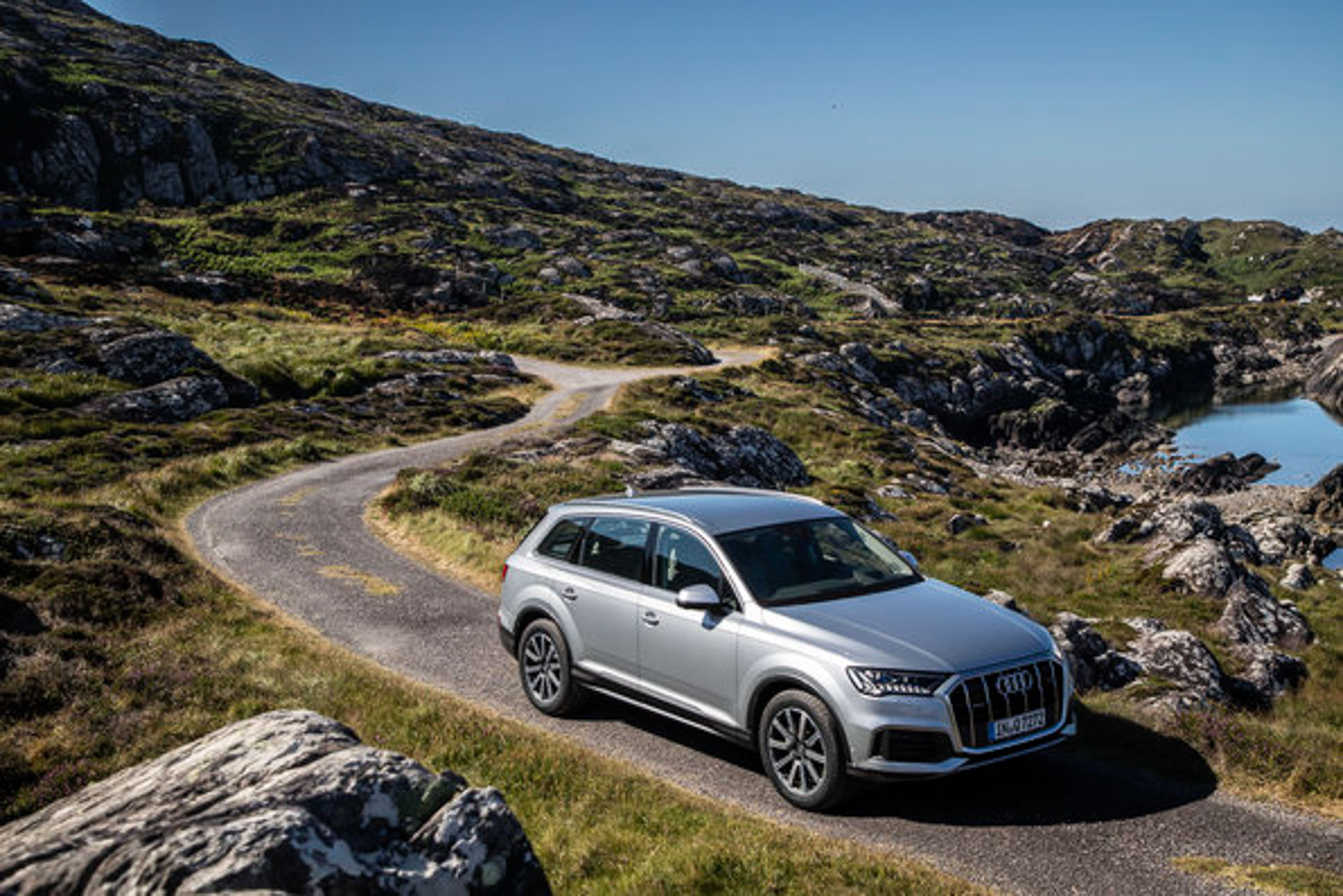
Unfortunately, we didn’t get a chance to sample the Q7’s off-road charms, but a 210km tour of the southern Irish district of Kerry and Killarney – on nerve-rackingly narrow roads for a five-metre long, almost two-metre wide SUV – showed off a confident, supple and capable large SUV whose handling prowess absolutely belies its size and 2.3-tonne weight.
It steers with aplomb and turns with confidence, while passenger comfort from the clever, compliant air suspension is exemplary.
Noise suppression is excellent, too, and visibility around the car is top-notch.
The three-litre V6 diesel has somewhat of a checkered history when it comes to its emissions tech, but remains a strong, tractable and faithful workhorse that seldom betrays its oiler origins, though it can feel a wee bit laggy when the drive mode selector is in normal mode.
Popping the transmission into Sport mode by simply pulling the shifter back once cures most of those ills.
With 210kW and – more importantly – 600Nm on duty, the Q7 never feels wanting, yet the engine hides its diesel origins well, with very little noise and vibration getting back into the car.
Verdict
We’ll need to test the substantially upgraded Q7 in its proper Australian spec when it lands early next year, but if this taster is anything to go by, the Q7 is set to retain its popularity with the luxury SUV set once it does arrive Down Under.
Specs
Model: Audi Q7 50 TDI quattro Engine: 2697cc 6-cyl, dohc, 24v, turbo Max power: 210kW @ 3500-4000rpm Max torque: 600Nm @ 2250-3250rpm Transmission: 8-speed automatic Kerb weight: 2165kg 0-100km/h: 6.6sec (claimed) Fuel economy: 6.9L/100km Price: $110,000 (estimated) On sale: 2020
